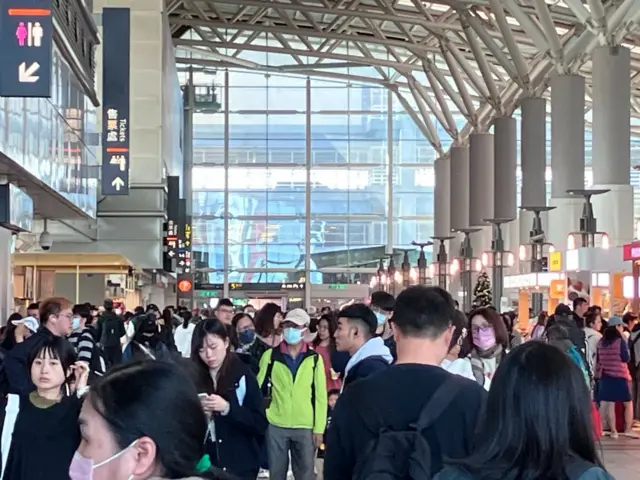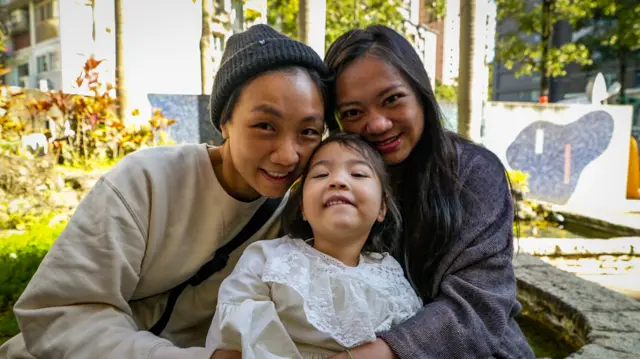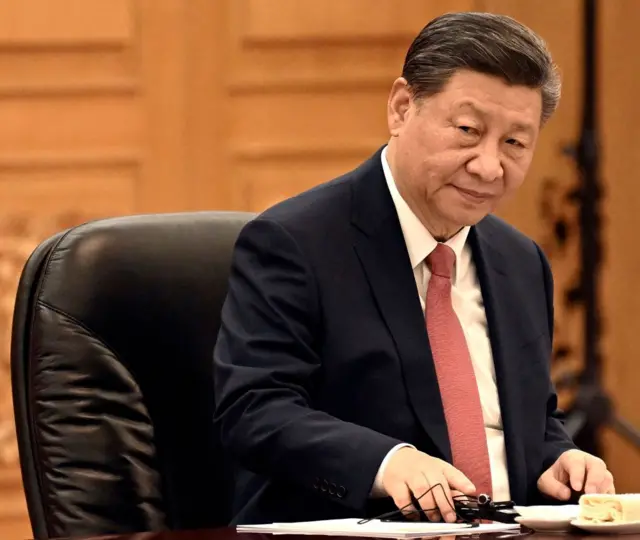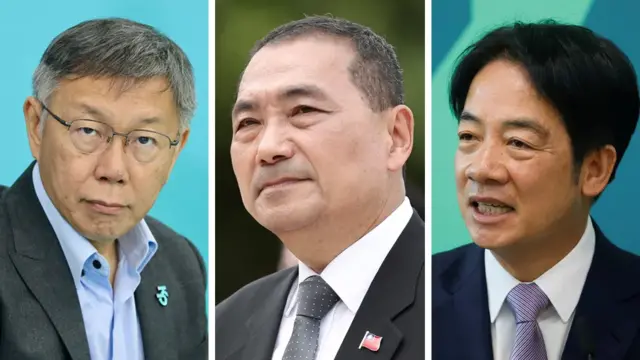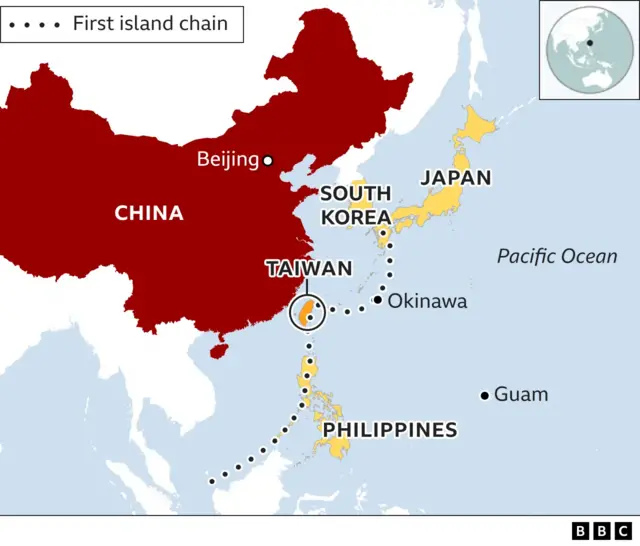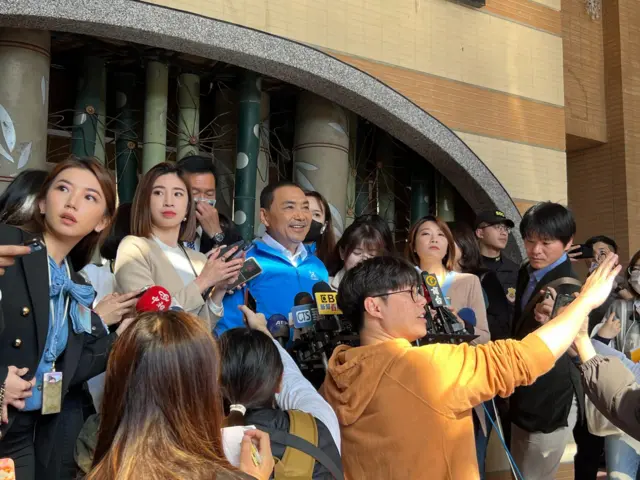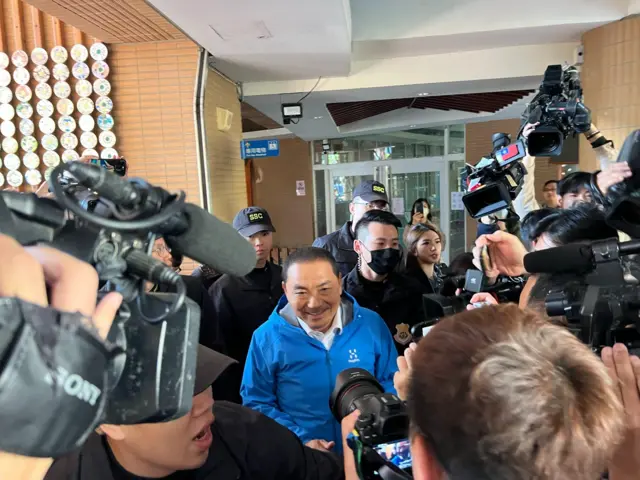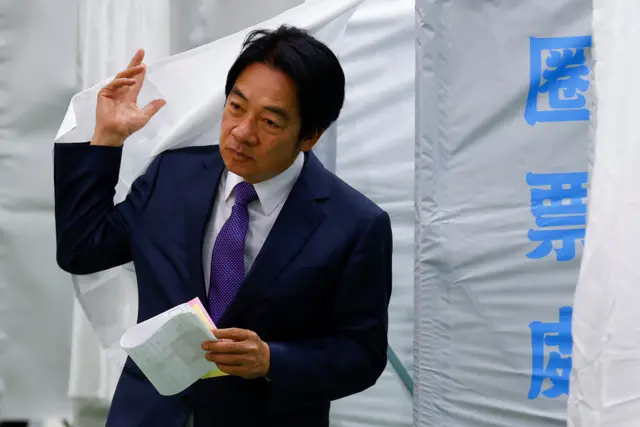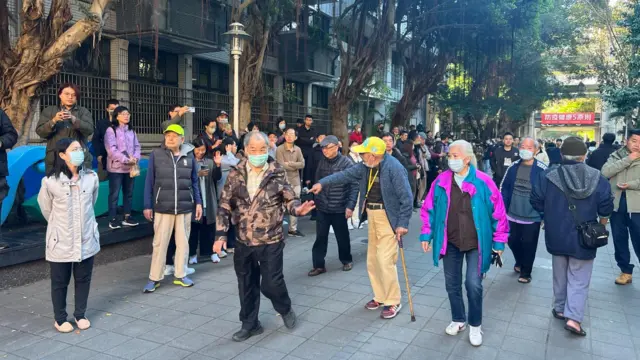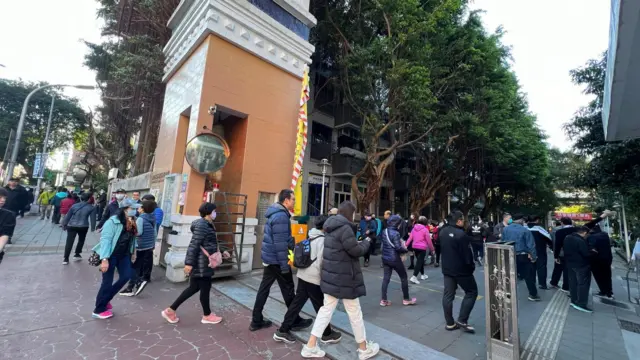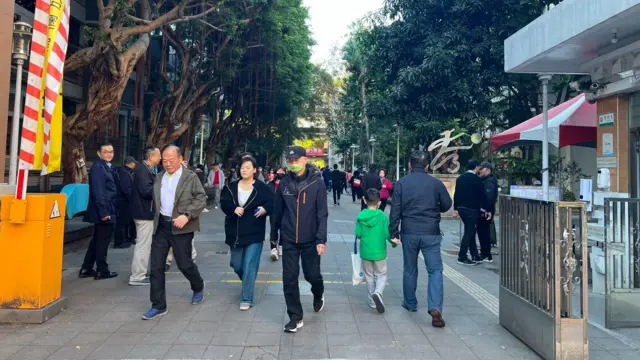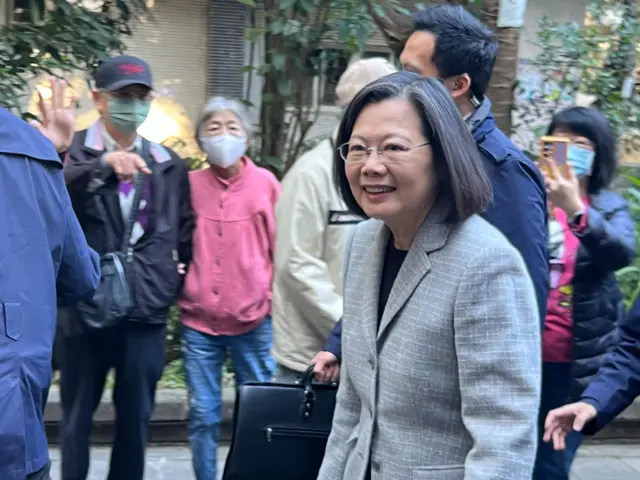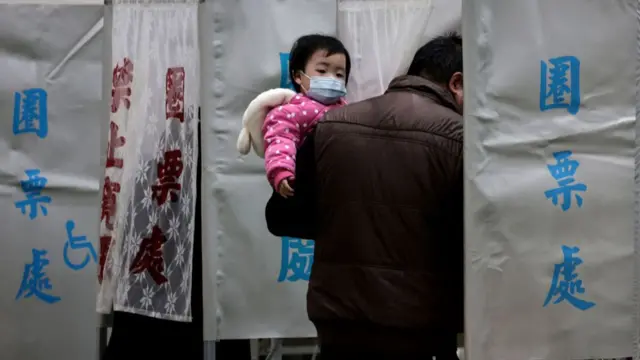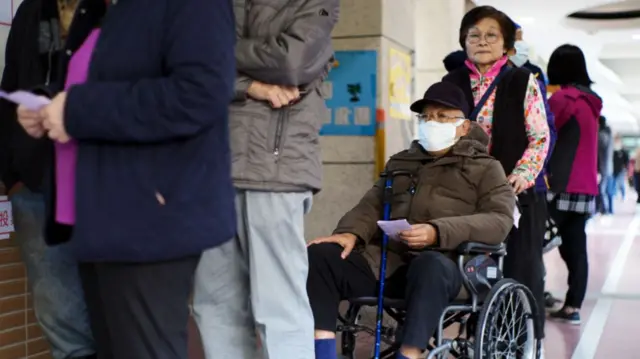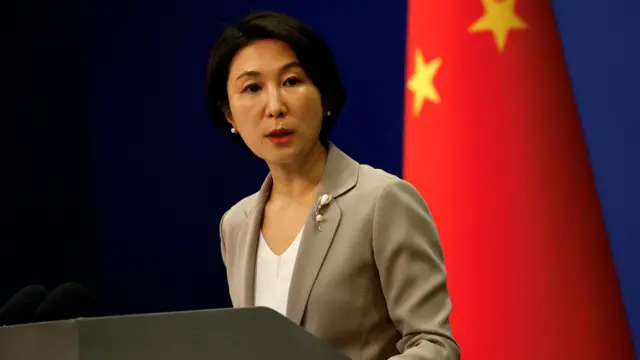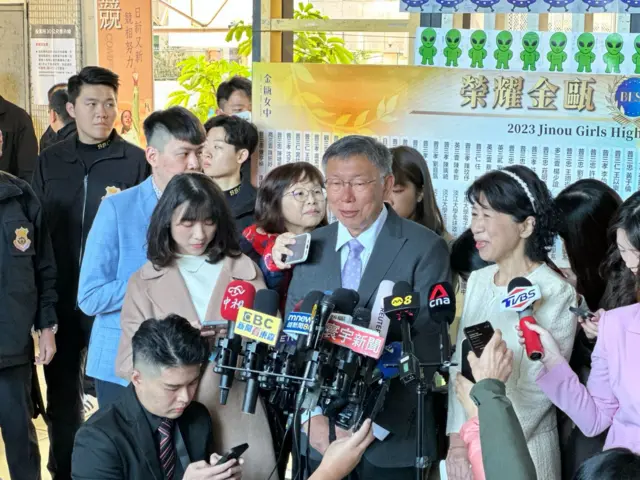Tawian votes: In picturespublished at 04:41 GMT 13 January 2024
A snapshot of the day as Taiwanese turn out to vote for a new president and a new legislature.
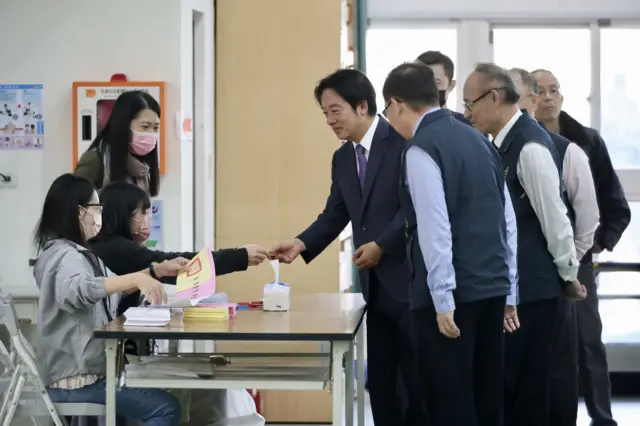 Image source, EPA
Image source, EPAVice-president and ruling Democratic Progressive Party (DPP) presidential candidate cast his vote earlier this morning
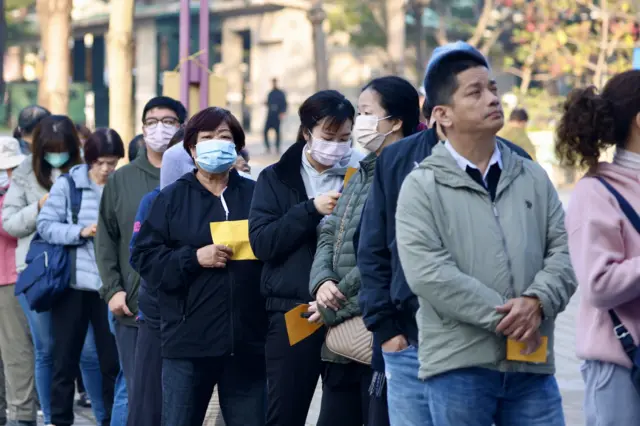 Image source, EPA
Image source, EPAMillions are expected to turn out for the polls today
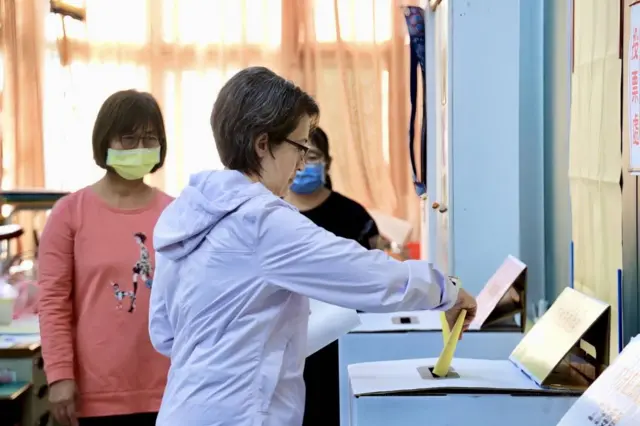 Image source, Getty Images
Image source, Getty ImagesThe ruling DPP's VP candidate Hsiao Bi-khim voted in Taipei on Saturday morning
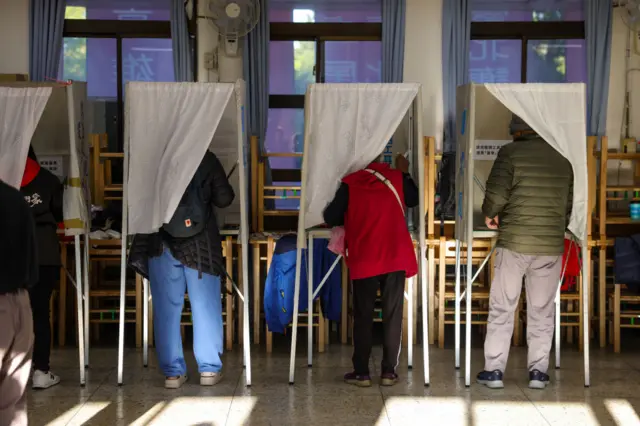 Image source, Getty Images
Image source, Getty ImagesVoters are choosing between three presidential candidates
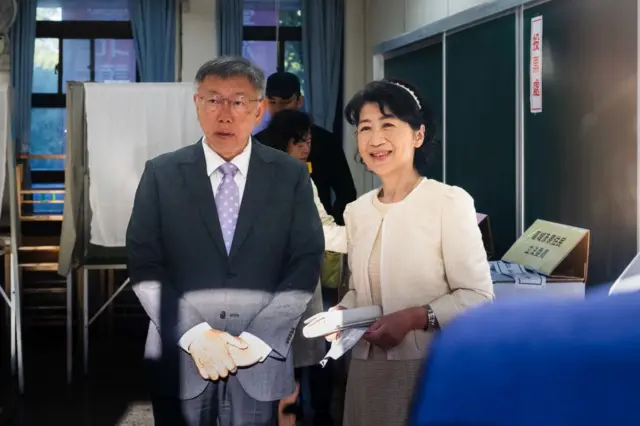 Image source, Getty Images
Image source, Getty ImagesThe opposition presidential candidate Ko Wen-je with his wife Chen Pei-chi
